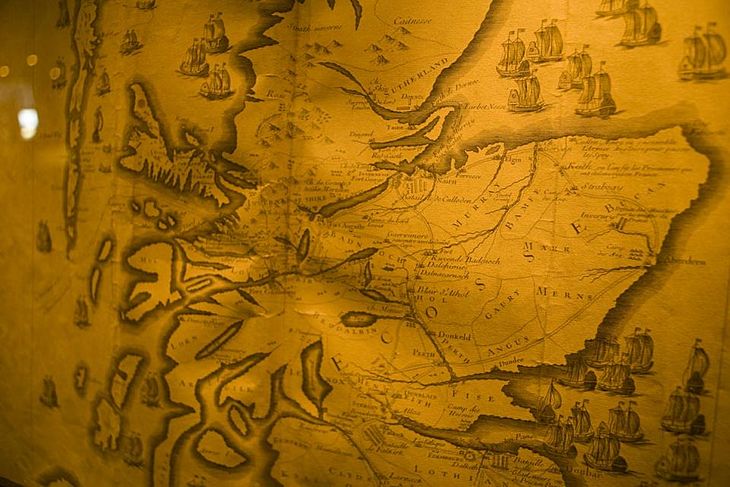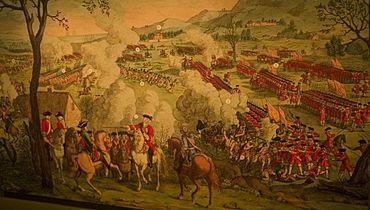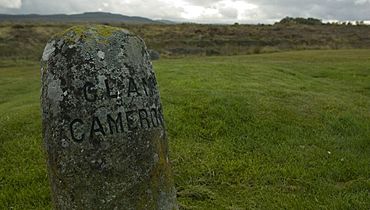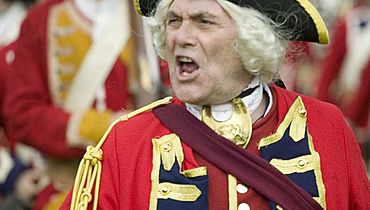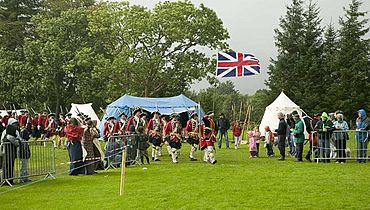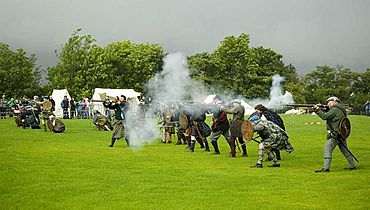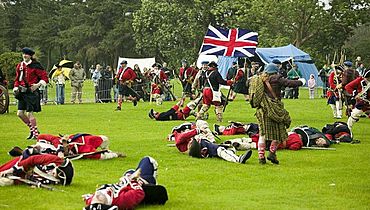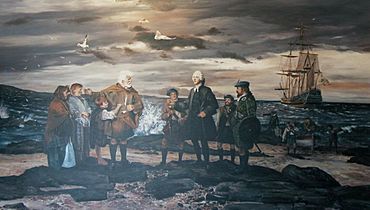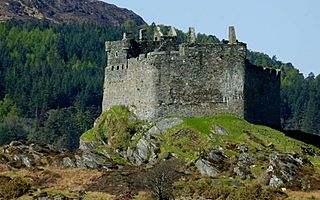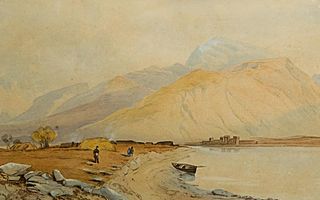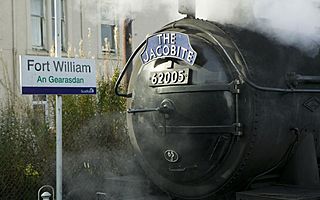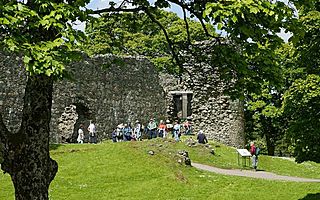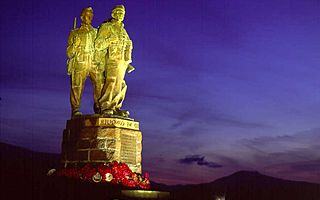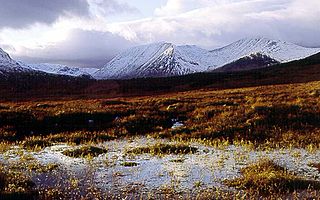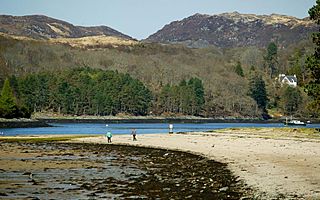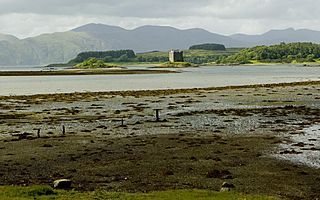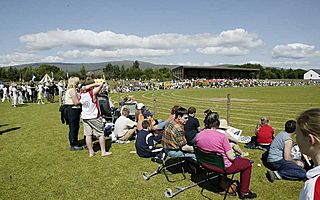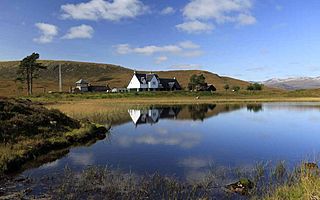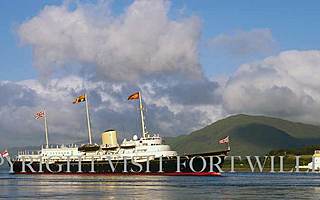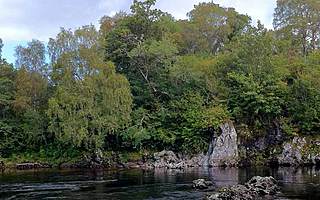Highland Battles in Fort William and Lochaber
Lochaber is a place where several recorded ancient Highland battles took place between Highland Clans or against invaders from the south
Battles of Inverlochy 1431 & 1645
The original defensive site at Inverlochy was probably sacked by the Vikings but the construction of a substantial Inverlochy Castle about 1280 signified the strategic importance of the site which saw its fair share of bloodshed in medieval times.
The First Battle of Inverlochy in 1431 was during the desperate struggle between the Lords of the Isles and the Royalists. Donald Balloch, 18 year old cousin of the then imprisoned Lord of the Isles led 600 clansmen up Loch Linnhe to attack the Royalists in the Castle. Simultaneously his uncle from Torcastle attacked from the North. 1000 men lay dead and the battle was commemorated in a famous pipe tune, the Pibroch of Donald Dubh.
The Second Battle of Inverlochy was in 1645 during Covenanting times, James Graham, Earl of Montrose, was on the Royalist side in the Civil Wars. With only 1500 men, and after a long forced march through the winter hills of Lochaber, he attacked the Duke of Argyll’s much larger army in front of the Castle at dawn. Argyll had retreated across the loch to Camasnagaul bay and witnessed, from a distance, the defeat of his men and the slaughter of 1500.
The Battle was witnessed by the local bard Iain Lom who overlooked the battlefield from a hillock just south west of the Castle. He wrote of the battle, in his native gaelic, a long poem which in part translates as:
The Day of Inverlochy
'Twas the Sabbath that rose, 'twas the Feast of St. Bride,
When the rush of the clans shook Ben Nevis's side;
I, the bard of their battles, ascended the height
O'er dark Inverlochy that shadow'd the fight,
And I saw the Clan Donald resistless in might.
When the rush of the clans shook Ben Nevis's side;
I, the bard of their battles, ascended the height
O'er dark Inverlochy that shadow'd the fight,
And I saw the Clan Donald resistless in might.
Those who fled were pursued by Montrose’s men and further skirmishes took place. The spot where the MacDonalds gave up the chase is marked to this day by a Cairn 6 miles off near Lundavra on the West Highland Way. This Cairn was commemorated locally with a tradition that every MacDonald passing by would add a stone to the Cairn, whilst every Campbell would remove one. The Cairn briefly disappeared altogether when a local Campbell took away more stones than the one allotted to him by tradition. With the advent of the West Highland Way there was either a great surfeit of MacDonald’s – as at one time the cairn was of such size as to threaten the pathway. It is now well signposted and a little more modest!
See http://www.clan-cameron.org/battles/1645.html for more detai.
The Siege of Fort William 20th March - 3rd April 1746
During the Jacobite uprising of 1745 Bonnie Prince Charlie at the start of his march South initially avoided the Fort of Fort William but in early March of 1746 a decision was made to take the Fort.
Fort Augustus had already fallen to the rebels, but meanwhile Campbell militia on behalf of the Government were burning and pillaging. The attack on the Fort may have been seen as retribution – the Fort was under the command of Major General Campbell.
Siege Cannon were obtained from Fort Augustus and the Fort bombarded, initially from the “Sugar Loaf” on the Cow hill – now clearly visible with a large Saltire painted on it. The distance to the Fort was too far however (as evidenced by Cannon Balls found beside Belford Road when Inverlochy Place was built last century). They then moved their cannon to the Craigs Burial Ground, but the Fort was easily supplied by sea and the jacobites inflicted only limited damage – and an early morning sortie by the Government troops captured some of their cannon and effectively put an end to the siege after two weeks.
Battle of Bun Garbheill c.1570
During an uncertain period in Clan Cameron history the Clan MacIntosh decided to take advantage of the Cameron’s apparent disarray, when the chief Allan Cameron was an infant and his tutors chose to claim the chieftain ship. The MacIntosh with 200 men came towards Achnacarry from the south, without apparent resistance, until on Loch Arkaig side they met with Donald “Taillear Dubh” Cameron – the “Black Tailor”, a near relative of young Allan, who had rallied the Clan to meet the challenge.
Though outnumbered, the Camerons fought ferociously and with their Lochaber Axes and put the remaining MacIntosh’s to flight. They retreated back over the hills to the head of Loch Eil where the chief of the MacIntosh Clan halted and standing atop a huge boulder (still there and known as Clach Mhic an Toisich – the MacIntosh’s Stone); he rallied his men and once more the slaughter began. If took the courage of the “Black Tailor” to unseat him, and his men then retreated further carrying their injured chief.
They headed south again over the hills toward Ardgour, resting in Glen Scaddle at a small hollow where they thought they were safe. Not so as the Tailor remained in pursuit and killed every last man at this remote site which may still have signs of the graves of the vanquished MacIntosh’s.
Battles between the Camerons and the Garrison at Inverlochy 1654
The building of the Fort of Inverlochy (later to become Fort William) in 1654 to suppress local insurrection and warfare, inevitably led to much confrontation between the British Soldiers of Cromwell and the Clan Cameron, led by their chief Ewen Cameron. Significant skirmishes took place at Achdalieu, Strone Nevis and Achintore, all in the year 1654.
It began when two thousand Cromwellian troops, under General Monk came equipped with one year's supplies, workmen, servants and ample materials to construct the garrison. Ewen Cameron heard of their entry into Lochaber and rushed back home and was most probably shocked by what he would find. Within a day the Cromwellians, using the plentiful woods of the area as a resource, had already firmly entrenched themselves in Lochaber behind a wooden stockade.
Ewen kept just thirty-two of his bravest men with him, retiring to the woods of Achdalieu where they would await the return of their forces and wait for a chance to strike against the enemy. The commander of the fort, a Colonel Brayne, would soon order nearly three hundred of his men out of the fort, to cut "some fine old oak trees." Two ships of soldiers sailed from the fort into Loch Eil, one anchoring on Ewen's side of the loch, the other ship on the opposite shore. The young Chief of Clan Cameron counted one hundred and thirty-eight of the enemy on his lochside, in addition to officers and workmen. Returning to his men Ewen asked their advice on what they might do "now that such a party of the enemy had offered their throats to be cut."
Ewen Cameron of Lochiel decided to make the British Army pay with their lives each and every time they set foot outside their fort. The Camerons would "take a bite" out of the Cromwellian soldiers during each such outing, beginning that very day at Achdalieu. Ewen's scouts brought word that the Cromwellian soldiers who had landed nearby were slowly made their way to the village of Achdalieu , pillaging houses and capturing poultry along the way. Though given orders to march slowly through the woods to engage the enemy, the Camerons ran on ahead, eager to expel their unwanted guests. The Cromwellians heard their charge, for though only 32 in number, the Camerons must have sounded like an entire regiment, utilising the cover of the woods to confound the enemy just as Ewen had hoped. Led by their courageous chief these "sons of the hound," armed with muskets, broadswords, dirks, targes and bow and arrow, rushed upon the soldiers.
For every Cameron there were four soldiers from the Fort armed with heavy muskets and bayonets. Immediately the Cromwellian soldiers fell into an extreme sense of panic, for they had fired much too soon. Long before they had a chance to re-load the Highlanders were upon them. Thirty of the enemy were dead instantly, with the "point blank" discharge of the Cameron firearms. The subsequent cutting wounds inflicted upon the redcoats were said to be beyond belief. Needless to say broadswords will inflict great damage upon an enemy, but they also were reported to have hewed through a good number of bayonets and into musket barrels. After what has been described as a "stiff fight" the remaining 60 or so living Cromwellians were put to flight.
Lochiel craftily sent two or three of his men ahead of the retreating enemy and had them call out from behind a bush, as to make the enemy imagine that they were heading into another body of Camerons. While this strategy slowed the return to their boats, it also enraged the redcoats, who were still superior in numbers to the Camerons. In the midst of the battle Ewen was separated from his men, after following a few of the enemy into the woods where he killed two or three of them with his "own hand."
As fate would have it the English officer who had commanded the party had also fled in this direction and had concealed himself behind a nearby bush. Observing that the Chief of Clan Cameron was alone he emerged from his hiding place intent on avenging the deaths of his men. Facing off to one another with swords these two gentlemen fought for both survival and honour. Their swordsmanship being of a somewhat equal match, they fought on as the redcoats continued to be hounded by the Cameron men. It is said that the English officer was a large, powerful foe, but that Ewen exceeded him in agility. In due time the Englishman's sword was tripped out of his hand, leaving Ewen poised for the kill. This was to be denied, for the redcoat pounced upon Ewen and wrestled him to the ground. They struggled and fought one another, eventually tumbling down into the nearby channel of a brook or stream, which happened to be dry.
The Englishman found himself atop of Ewen and proceeded to use his great size to drive the Cameron Chief deeply into the sharp stones. After some time, during which the two men fought with their last remaining strength, the English officer regained the use of a free hand, with which he drew the dagger from upon his belt. While keeping his full weight upon Ewen, to hold him to the ground, the Englishman attempted to stab his foe, but was unable to in such close quarters. In the end he finally managed to disengage himself, raising high above Ewen for the death blow. In those moments of battle, when one is faced with impending death, desperation and fury combine with one another into a formidable defence. Ewen at long last saw his opportunity, which he must have realised would be his last chance of survival. He reached up and grabbed his opponent by the collar, jumping at the extended throat which presented itself at that moment. The English officer, at full extension with his dagger above Ewen, was defenceless; his throat was bitten and torn from his body. As Ewen reflected in his later years "it was the sweetest bite" that he had ever experienced. The Camerons lost only five men on that day.
Many years later, when more civil relations had been restored Lochiel found himself in London at a barbers shop to get his beard and hair dressed. The barber sat him in his chair and producing his razor remarked: " You are from the north, sir, I believe ? "
" Yes," answered Lochiel, " I am. Do you know people from the north ? " " No," shouted the angry barber, " nor do I wish to. They are savages there - one of them tore the throat out of my father with his teeth, and I only wish I had the fellow's throat as near me as I have yours just now." On this occasion Lochiel did not challenge him and it is said he never again entered a barber's shop.
Soon after the fight at Achdalieu , the Ewen requested those of his people who lived near the Cromwellian garrison of Inverlochy to "make their peace" with the Governor, that they should live peaceably towards himself and his garrison. This was soon arranged and the Cameron people were secured from ruin during their leader's absence from the district. The Governor, however again sent parties to bring in wood and other materials to strengthen his fortifications - materials belonging to the Camerons, if not Ewen himself.
Being kept well informed of what was occurring at Inverlochy the young Chief of Clan Cameron returned to the district and immediately placed a body of his most resolute followers in a secure place, less than one-half mile westward of the fort. That same morning a body of two hundred men came out from the garrison, marching in Ewen's direction. Observing them, he detached twenty of his men to a secret place, to the rear of the enemy - between them and the garrison - with orders to rush out and intercept them in case they retreated, as they naturally would when attacked in front by the Camerons. The Cromwellian party marched in "good order" until they arrived at the village of Achintore , where Ewen and his band lay concealed. The Camerons furiously rushed forward, scattering their enemies in all directions.
The memory of the battle of Achdalieu struck fear into their hearts, when they found themselves so suddenly and unexpectedly attacked by a force of strength of which they did not know and could not ascertain. The men in ambush rushed forth to intercept them in their flight, giving the Cromwellians a full charge of their firelocks in front and then charged with their broadswords, killing more than half their number. Those who escaped were pursued to the walls of the fort, but many of them were taken prisoner.
Once more, Ewen, XVII Captain and Chief of Clan Cameron left Lochaber and again heard that the Governor of Inverlochy was taking advantage of his absence, cutting down large quantities of his woods to supply the garrison with an ample supply of fuel during the upcoming winter. Annoyed at this, he returned from his military commitments elsewhere and found that the English soldiers had been cutting down the woods on the shoulder of Ben Nevis , about one mile eastward from the garrison. Ewen marched to this point, called Strone Nevis, early on the following morning after his arrival. He carefully posted his men and gave then the necessary instructions.
Ewen kept sixty, under his own immediate command, in a tuft of wood at a point opposite where the soldiers sent out from the garrison with the hewers of the wood always took up their position. Two other bodies of thirty men each were told off to his right and left, respectively, where they were concealed. They were instructed to rush forth as soon as the concerted signal was given, which was to be a great shout of "Advance, Advance!" as if the wood was full of men. The remainder of his men he placed in a pass between the wood and the garrison, to lie in ambush and not to move out of that unless they found that the enemy was making a successful resistance when attacked by the Highlanders in front. If these men laying in ambush noticed their enemies running away, in retreat, they were to rush forward in advance of them, place them between two fires by giving them a volley in front and then attack them with their broad-swords. The object was to kill as many as they could. They were, however, specially ordered to give quarter to any who offered to lay down his arms and surrender.
About four hundred Cromwellians marched out of the garrison, taking their usual position, quite innocent of the fate which immediately awaited them. Everything turned out as Ewen anticipated; a general slaughter at once ensued. The Highlanders, issuing forth from their places of concealment, made a great noise, loudly echoed by the surrounding mountains. This, accompanied by the simultaneous sounds of several bagpipes, frightened the enemy, who in consequence made no resistance. They truly believed themselves surrounded by large bodies of Highlanders pouring in upon them from all sides and immediately fled at their highest speed. More than one hundred of the Cromwellians were killed on the spot and the remainder, having been attacked unexpectedly by those in ambush between them and the garrison, were part of a second slaughter.
Not more than a third of the four hundred escaped. These were pursued to the walls of the garrison and the whole battle was over so quickly that it became a matter of history before the Governor actually knew that his men had even been attacked.
Not one single Cromwellian officer escaped, they being the only men among the garrison troops who had the courage to offer any resistance to the Camerons. Among them was a young gentleman, a great "favorite" of the Governor who, exasperated at the loss of his friend and that of his men, became furious and swore immediate revenge upon Ewen and the entire Clan Cameron. The next morning the Governor ordered out the entire garrison, some 1,500 men. Ewen, as usual, obtained advance notice of this action and moved his men to higher ground, keeping in view of the enemy as he himself "marched round the mountains, with pipes playing and colors flying." He made every effort to induce the Cromwellian commander to follow him, to get him entangled in the woods, narrow paths and other obstructions abounding in the area, where he could be successfully attacked.
The Governor was too wary to fall into the trap prepared for him. After traversing many difficult and rugged paths the Cromwellian forces turned right about and by the help of good guides found their way back to the garrison, heartily fatigued and disgusted with the fruitless expedition. The Camerons, following closely on their heels, repeatedly insulted the Governor and his followers. Whenever the nature of the ground favoured, and when they came to close quarters, they invited the Cromwellians to advance "for their Chief was there, ready to receive their Governor, if he wished to speak to him." They were also said to have uttered several other "very tantalising and insulting remarks." Needless to say, after this the garrison of Inverlochy was on better guard when they dared to venture from their fortification.
